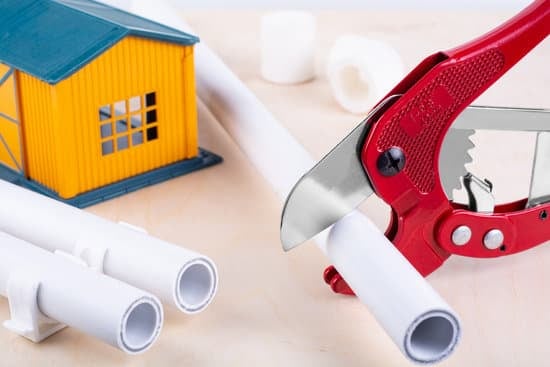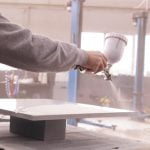Homeowners are constantly seeking ways to increase the value of their homes. One popular avenue for achieving this goal is through home improvements. Whether it’s updating the kitchen, remodeling a bathroom, or enhancing curb appeal, many homeowners believe that these projects will not only make their homes more aesthetically pleasing, but also boost their property value.
In this article, we will dive into the relationship between home improvements and property value, exploring the factors that contribute to value appreciation and debunking some common misconceptions along the way. We will also highlight specific home improvement projects that have proven to provide a high return on investment.
But before you embark on any home improvement project, it’s important to consider key factors such as budget constraints and your target market. In addition, we will discuss the significance of energy-efficient upgrades in increasing home value and provide real-life examples of homeowners who have successfully increased their property value through strategic home improvements.
Furthermore, we will examine the role of professional appraisal in determining the value of these improvements so that you can make informed decisions when planning your next project. By understanding the impact of different types of improvements on property value and knowing how to prioritize them effectively, you can maximize the return on your investment and ultimately create a more valuable and desirable home.
Understanding the Relationship between Home Improvements and Property Value
When it comes to making improvements to a home, one of the key considerations for homeowners is how these upgrades will affect the value of their property. Understanding the relationship between home improvements and property value can help homeowners make informed decisions about which projects to prioritize and invest in.
Numerous studies have shown that certain home improvements can indeed increase the value of a property. According to a report by Remodeling Magazine, projects such as adding a wooden deck, replacing windows, or remodeling a kitchen often provide a high return on investment (ROI) when it comes time to sell. However, it is important to note that not all home improvements are created equal in terms of their impact on property value.
Factors such as location, market conditions, and the specific needs of potential buyers should be taken into account when considering which home improvements will yield the greatest increase in value. For example, in areas where outdoor living spaces are highly coveted, investing in landscaping or adding a patio might have a greater impact on property value than installing new appliances indoors.
Similarly, energy-efficient upgrades such as solar panels or insulated windows may attract environmentally-conscious buyers and boost the overall value of the home.
| Home Improvement Project | Average ROI |
|---|---|
| Kitchen remodel | 70-80% |
| Bathroom remodel | 60-70% |
| Deck addition | 65-90% |
These figures demonstrate that certain types of renovations have the potential to substantially increase the value of a home. However, it is important to remember that these percentages can vary depending on factors such as the quality of the work, the materials used, and the cost of labor in a specific area. Therefore, it is crucial for homeowners to research and consult with professionals to ensure that their home improvements will have a positive impact on property value.
Key Factors to Consider Before Embarking on Home Improvement Projects
Budget
Before starting any home improvement project, it is essential to consider your budget. Determine how much you are willing and able to spend on the project, including all necessary materials, labor costs, and any additional expenses that may arise during the renovation process. Creating a realistic budget will help you prioritize your projects and avoid overspending.
Timeframe
Another critical factor to consider before embarking on a home improvement project is the timeframe in which you want the work to be completed. Assess whether the project can be done within your desired timeframe or if certain adjustments need to be made. Some projects may require more time than others, so carefully consider how long you are willing to wait for completion.
Neighborhood Factors
One aspect that homeowners often overlook when contemplating home improvements is considering their neighborhood’s characteristics and standards. Investing in high-end renovations may not necessarily yield a significant increase in value if they far exceed what other homes in the area offer. It is crucial to strike a balance between making improvements that enhance your quality of living while also aligning with neighborhood expectations.
Resale Value
Consider whether you plan on staying in your home long-term or if there is a possibility of selling it in the future. Home improvements should not only be tailored to your personal preferences but should also have the potential to add value should you decide to put your property on the market. Research comparable homes in your area and consult with real estate professionals to determine which improvements offer favorable returns on investment.
By carefully considering these key factors before undertaking any home improvement projects, homeowners can ensure that their investments will yield desirable results both in terms of personal enjoyment and property value appreciation. Taking these factors into account will allow for informed decision-making and help homeowners maximize the benefits of their renovations while avoiding costly mistakes.
Busting Myths
One common misconception about home improvements is that any improvement project will automatically increase the value of a property. However, this is not always the case. While certain home improvements can certainly add value to a home, not all projects have the same impact. It is important for homeowners to understand which improvements are worth investing in and which may not provide a significant return on investment.
One myth that needs to be debunked is that adding square footage always increases the value of a property. While it is true that additional living space can appeal to potential buyers and potentially increase the value of a home, it is not a guarantee. The location, condition, and overall layout of the home also play important roles in determining its value. It’s essential for homeowners to carefully consider whether adding square footage aligns with their budget and goals.
Another common misconception revolves around high-end upgrades. Many homeowners believe that by incorporating luxury features and materials into their homes, they will automatically receive a higher return on investment. However, this is not always the case. The market demand for such high-end features varies depending on location and target buyer demographics. Conducting thorough research and consulting with real estate professionals can help homeowners make informed decisions about which upgrades are likely to yield the highest returns.
To debunk these myths and determine which home improvements will truly increase value, homeowners should rely on accurate information from reputable sources such as professional appraisers or real estate agents specializing in their local market. By understanding the relationship between specific improvements and property values, homeowners can confidently prioritize projects that offer the best potential for increasing their home’s worth.
| Myth | Fact |
|---|---|
| New square footage always adds value | The impact of added square footage depends on various factors such as location, condition, and layout. |
| High-end upgrades guarantee high returns | The demand for luxury features varies, and researching the local market is crucial in making informed decisions. |
Top Home Improvement Projects with the Highest Return on Investment
When homeowners decide to invest in home improvement projects, they often have one primary goal in mind: to increase the value of their property. However, not all home improvements are created equal when it comes to return on investment (ROI). In this section, we will explore the top home improvement projects that consistently provide homeowners with the highest return on their investment.
One of the most lucrative home improvement projects is a minor kitchen remodel. This project typically involves updating appliances, countertops, cabinets, and flooring while keeping the existing layout intact. According to industry experts, homeowners can expect to recoup an average of 80-85% of their investment at resale. A modernized kitchen not only enhances the visual appeal but also increases functionality and overall desirability for potential buyers.
Another high ROI project is adding a deck or patio to the backyard. Outdoor living spaces have become increasingly popular as homeowners seek to maximize their usable square footage. Whether it’s a new composite deck or a stone patio with outdoor seating and cooking areas, these additions can provide a significant return on investment. On average, homeowners can expect to recoup around 75-85% of their initial cost when they sell their property.
Finally, giving your house a fresh coat of paint both inside and out is an affordable and effective way to boost its value. A well-painted home gives off an impression of cleanliness and care, making it more appealing to buyers.
The cost of hiring professionals for this project is relatively low compared to other renovations but can yield substantial returns. Homeowners who invest in painting their homes often see an ROI ranging from 70-100%, depending on factors such as market conditions and color choices.
How to Prioritize Home Improvements to Maximize Value Appreciation
When it comes to home improvements, it’s important to prioritize projects that will maximize value appreciation. With so many different options available, it can be overwhelming for homeowners to decide where to invest their time and money. However, by considering a few key factors, you can make informed decisions and ensure that your improvements have the greatest impact on your property value.
One important factor to consider when prioritizing home improvements is the current condition of your home. Start by addressing any necessary repairs or maintenance issues before diving into cosmetic upgrades. This could include fixing plumbing or electrical issues, repairing a leaky roof, or updating outdated systems. By starting with these essential tasks, you’ll be preserving the integrity of your home and preventing potential problems down the line.
Once you’ve taken care of any necessary repairs, it’s time to focus on improvements that will enhance both the functionality and aesthetics of your home. Consider what potential buyers in your area are looking for and what features are most desirable.
For example, a kitchen remodel is often considered one of the best investments as it has a high return on investment (ROI) and is a major selling point for many buyers. Other popular projects with high ROI include bathroom renovations, adding curb appeal with landscaping or a new front door, and updating flooring throughout the house.
To help guide you in prioritizing your home improvements, here is an unordered list summarizing key points:
- Start with necessary repairs and maintenance tasks to preserve the integrity of your home.
- Consider what potential buyers in your area are looking for and focus on improvements that will enhance both functionality and aesthetics.
- A kitchen remodel often has a high return on investment (ROI), along with bathroom renovations and improving curb appeal through landscaping.
By following these guidelines and prioritizing projects accordingly, you’ll be maximizing the value appreciation of your home while ensuring that your investments align with market demand. Remember to consider resale value when making decisions as certain upgrades may not always provide a significant return on investment. Doing thorough research and consulting with a real estate professional or contractor can also be valuable in determining which home improvements will have the greatest impact on your property value.
The Impact of Energy-Efficient Upgrades on Home Value
Energy efficiency has become an increasingly important factor for homeowners as they seek ways to reduce their carbon footprint and save money on utility bills. In recent years, energy-efficient upgrades have also been recognized as a significant contributor to increasing the value of a home. This section will explore the impact that energy-efficient upgrades can have on home value and why homeowners should consider incorporating these improvements into their renovation plans.
The Demand for Energy Efficiency
With growing awareness about climate change and rising energy costs, homebuyers are increasingly prioritizing energy efficiency when searching for a new property. Energy-efficient homes offer numerous benefits such as reduced energy consumption, lower utility bills, and enhanced comfort levels. As a result, homes with energy-efficient features tend to attract more potential buyers and can command higher prices in the real estate market.
Increased Home Value through Energy-Efficient Upgrades
Energy-efficient upgrades can substantially increase the value of a home by boosting its appeal, reducing operating costs for prospective buyers, and enhancing overall sustainability. According to research conducted by the Department of Energy in the United States, homes with green certification or eco-friendly features tend to sell at a premium compared to conventional properties.
Moreover, studies indicate that homeowners who invest in energy-efficient upgrades often see a return on investment ranging from 70% to 100% when it comes time to sell their home.
Popular Energy-Efficient Upgrades
To maximize the impact on home value, homeowners should focus on specific energy-efficient upgrades that are highly sought after by buyers. Some popular options include installing solar panels, upgrading windows and insulation for better heat retention, investing in smart technology for efficient heating and cooling systems, and utilizing energy-saving appliances throughout the home. These improvements not only demonstrate a commitment to sustainability but also provide long-term cost savings for both current owners and future occupants.
By understanding the demand for energy efficiency in today’s real estate market, homeowners can strategically invest in energy-efficient upgrades that not only enhance their quality of life but also boost the value of their property. It is important to consult with professionals and conduct thorough research to determine which energy-efficient upgrades will have the highest impact on home value in a specific area.
Ultimately, by prioritizing energy efficiency, homeowners can take advantage of the growing trend and reap the benefits of increased property value while contributing towards a more sustainable future.
Case Studies
One of the best ways to understand the impact of home improvements on property value is by examining real-life case studies. These examples provide valuable insights into how specific projects can significantly increase a home’s worth. Here are some inspiring stories of homeowners who successfully boosted their property value through strategic home improvements:
- Kitchen Renovation: Jane and John Smith decided to invest in a kitchen renovation as they believed it was the heart of their home. They replaced outdated appliances, installed new cabinets and countertops, and updated the lighting fixtures. The result? Their property value increased by 20%, allowing them to recoup most of their project costs when they eventually sold their home.
- Bathroom Remodel: Sarah Thompson wanted to update her outdated bathroom to attract potential buyers. She replaced old fixtures, added a modern vanity, retiled the shower area, and installed energy-efficient features. As a result, her home’s value increased by 15% when compared to similar properties in the neighborhood.
- Curb Appeal Upgrades: Mike Johnson recognized the importance of first impressions when selling his home. He invested in enhancing his home’s curb appeal by landscaping the front yard, repainting the exterior, replacing the front door, and adding outdoor lighting. These improvements made a substantial impact on potential buyers, leading to a 10% increase in his property’s value.
These case studies demonstrate that strategic and well-executed home improvement projects can indeed significantly increase property value. However, it is essential to note that each house and market is unique, so results may vary based on factors such as location, current market conditions, and overall quality of workmanship.
By considering these real-life examples, homeowners can gain valuable insights into which projects tend to provide the highest return on investment (ROI). It is crucial to assess both personal preferences and market trends when deciding which improvements to undertake, as these factors will ultimately determine the impact on property value.
The Role of Professional Appraisal in Determining the Value of Home Improvements
When it comes to determining the value of home improvements, professional appraisal plays a crucial role. Appraisers are trained experts who assess the value of properties based on various factors, including home improvements. Their objective evaluation provides homeowners with an accurate understanding of how their investments in home improvement projects affect the overall value of their property.
Professional appraisals involve a comprehensive analysis of both the interior and exterior features of a home, taking into account any recent upgrades or renovations. Appraisers consider factors such as the quality and functionality of improvements, the materials used, the overall design aesthetic, and how these enhancements compare to similar properties in the area.
By relying on their expertise and knowledge of local markets, appraisers can offer an unbiased assessment of how much value is added to a property through specific home improvement projects.
During an appraisal, homeowners should be prepared to provide information about any completed renovations or upgrades they have made. This includes details about what was done, when it was done, and any applicable permits obtained.
It can also be helpful to share receipts or invoices for work done by professionals to validate the cost and quality of improvements. By being transparent and informative during the appraisal process, homeowners can ensure that appraisers have all necessary information to accurately evaluate the impact of their home improvements on property value.
Overall, professional appraisals are a valuable tool for homeowners looking to understand how their home improvements contribute to their property’s overall value. Appraisers help homeowners make informed decisions about future projects by providing insight into which types of improvements yield the highest return on investment in their specific market. Their expert evaluations provide homeowners with peace of mind that they are making wise decisions when it comes to enhancing their homes while also maximizing potential increases in value.
Conclusion
In conclusion, it is clear that home improvements have a significant impact on property value appreciation. Throughout this article, we have explored the relationship between home improvements and property value and debunked common misconceptions about this topic. We have also provided insights into the top home improvement projects with the highest return on investment and shared valuable tips on how to prioritize these projects to maximize value appreciation.
One key takeaway from this discussion is the importance of considering factors such as market trends, neighborhood standards, and personal preferences before embarking on any home improvement project. By understanding the unique characteristics of their property and conducting thorough research, homeowners can make informed decisions that will boost the value of their homes.
Another crucial factor to consider is energy efficiency upgrades. As highlighted earlier, these upgrades not only contribute to a greener environment but also significantly impact property value. With increasing awareness about sustainability and energy conservation, investing in energy-efficient upgrades can lead to substantial returns on investment while simultaneously reducing utility costs.
Lastly, professional appraisal plays a vital role in determining the value of home improvements. Homeowners should consider consulting with certified appraisers who specialize in residential properties to get a precise assessment of how their renovations or additions have impacted their property’s value.
Frequently Asked Questions
What will increase home value most?
There are several factors that can significantly increase the value of a home. One of the most impactful is location. Homes situated in desirable neighborhoods with good school districts, access to amenities, and low crime rates tend to have higher values. Additionally, investing in curb appeal can greatly enhance a home’s value.
Improving the exterior of the house, such as landscaping, repainting, or adding a modern front door, can make a strong first impression on potential buyers and drive up its worth. Another key factor is updating or renovating the kitchen and bathrooms. These areas are often considered important by buyers and making upgrades like installing new appliances or replacing outdated fixtures can have a positive impact on the home’s overall value.
Are home renovations a good investment?
Home renovations can indeed be a good investment when done thoughtfully and strategically. Renovations allow homeowners to customize their living spaces to meet their preferences and needs while potentially increasing the property’s value. It’s important to prioritize renovations that are likely to yield significant returns rather than obscure ones that may not contribute much to resale value.
For example, focusing on essential upgrades like repairing structural issues, improving energy efficiency with new windows or insulation, or modernizing outdated systems such as plumbing or electrical work are smart investments that can pay off in the long run. However, it’s crucial to carefully consider budgeting for renovation projects and consult with professionals who can provide expert advice on maximizing returns.
Do DIY projects increase home value?
DIY projects have the potential to increase home value if they are planned and executed effectively. While complex tasks may be best left to professionals, smaller DIY projects like painting walls, upgrading light fixtures, or even enhancing curb appeal through gardening efforts can enhance a home’s overall appeal without breaking the bank. However, it’s important for homeowners undertaking DIY projects to possess the necessary skills and knowledge required for successful completion; otherwise poorly executed work may actually reduce home value instead of increasing it.
Homeowners should also consider whether they have the time, resources, and expertise to tackle certain projects, as different tasks require different levels of skill. In some cases, consulting professionals for guidance or assistance can be a wise decision to ensure the DIY project positively impacts home value.

I’m thrilled to have you here as a part of the Remodeling Top community. This is where my journey as an architect and remodeling enthusiast intersects with your passion for transforming houses into dream homes.





